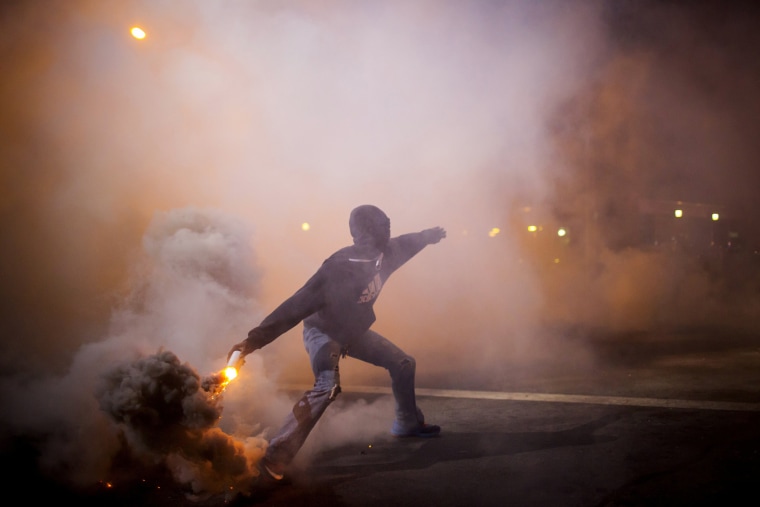I’m neither upset nor disappointed by what happened in Baltimore this week. Don’t get me wrong—I feel for the store owners and employees whose livelihoods were stolen when their businesses and places of employment were looted and burned. I feel for the cop in critical condition after being hit by rocks.
I heard a Baltimore resident say on MSNBC that the CVS that burned down was a staple in that neighborhood. Senior citizens not only got their medications at the pharmacy, but people would grocery shop there too. Residents now have even fewer resources in an already under-resourced community.
But on the other hand, I feel no sense of moral outrage at the destruction of objects and things. Not when it comes in response to social injustices far worse, such as the rampant killing of unarmed black men by police officers.
The young people who participated in Tuesday’s uprising (and I deliberately use the word “uprising” and not “riot”) were responding to something—something more than the death of Freddie Gray. It is something deeper and long simmering.
The protesters were responding to the death of Walter Scott in North Charleston, South Carolina, who was shot in the back five times as he fled from an officer who then attempted to plant evidence on his lifeless body.
They were responding to the death of Natasha McKenna in Fairfax, Virginia, who was tased to death by officers while she was already handcuffed at the wrist and shackled at the ankles.
They were responding to the death of Eric Harris in Tulsa, Oklahoma, whom police told “f*** your breath” as he lay gasping for air after being shot by a volunteer reserve officer who was apparently unqualified for duty to begin with.
They were responding to the death of Eric Garner in New York City who was strangled to death on videotape yet whose killer walked free.
These protesters were responding to poverty, unemployment, and economic disenfranchisement. A global study released in December last year found that poor teenagers in Baltimore face worse conditions than teenagers in a town in Nigeria.
They were responding to routinely abusive encounters with law enforcement. An investigation published by the Baltimore Sun found that more than 100 Baltimoreans have been awarded settlements by the city since 2011 after being victimized by the police.
The children were responding to failing schools.
They were responding to vacant and boarded-up housing, a lack of businesses in their community, crumbling infrastructure, economic neglect, and the fact that they must grocery shop at CVS because there is no supermarket nearby.
These are the reasons why Baltimore’s children are angry. They’re why I’m angry. And these reasons should anger you, too.
What happened in Baltimore this week wasn't just a criminal act of thuggery. It was a cry for help – a distress call. An explosive release of mounting frustration. Because of institutionalized forces that work to their disadvantage, most of Baltimore’s black children live an under-resourced life of in-opportunity. And every 28 hours they are reminded that even the little bit that they have can be snatched from them in an instant, and that nobody cares enough about them to do anything about it.
Is violence a productive response to the problem? No. Was it misguided? Perhaps. But it’s cathartic. And what do you do when you've been yelling the same thing for months yet face daily reminders that no one is listening? Baltimore's children are sick and tired of being sick and tired, and they let that be known by a means that demands acknowledgement. They now have the nation's attention. It is up to us now to listen to them.
Certainly, the absence of civil unrest is ideal. But it is not good enough to call for peace without also addressing the systemic injustices and oppression that produce unrest to begin with. Many call for peace when what they really want is for black people to endure their oppression silently. Young people in Baltimore have said they will not do that any longer.
We need swift changes to the way policing is done in black and brown communities; to the way the criminal justice system engages black and brown people; to the way minorities are integrated into our social, political, and economic systems. Changes that let the young people of Baltimore and elsewhere know that they are being heard. Without such changes, we will continue to see unrest in American streets as the oppressed demand their freedom. We have had enough!
What happened this week was 12-hours of property damage in response to decades of unchecked police violence. If you are more outraged by stolen sneakers than by stolen lives, and more shocked by the uprising than by the hideous factors that conceived it, then you, my friend, are a part of the problem.
